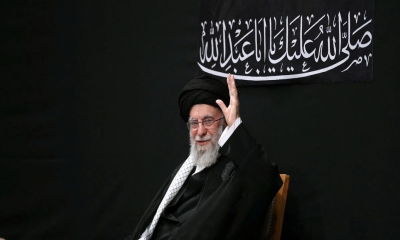British journalist and long-time observer of Bangladesh, David Bergman, has offered a sharp critique of the recently released “July Declaration” by interim leader Professor Muhammad Yunus.
In a Facebook post published shortly after Yunus read out the declaration, Bergman called the document deeply partisan and politically motivated.
He argued that it resembled a manifesto written by long-standing opponents of the ruling Awami League, rather than a unifying national call for reform.
Bergman expressed concern over the way the declaration portrayed Bangladesh`s political history.
He accused the document of being overtly anti-Awami League, selectively focusing on the party`s failures from 1972 to 1975 while ignoring its post-independence nation-building efforts.
He was especially critical of the complete omission of the 1975 assassination of Sheikh Mujibur Rahman and his family — a turning point that led to military rule. According to Bergman, this erasure severely undermines the historical integrity of the document.
He further noted that the declaration presents the era of Ziaur Rahman, the founder of the BNP, with clear bias, glorifying it as a “people-soldier revolution.”
At the same time, the 2007 military-backed caretaker government is portrayed as a “conspiratorial arrangement,” without acknowledging the context of alleged election-rigging by the BNP that led to its formation. Bergman also pointed out the absence of the Awami League’s 2008 electoral victory — a key democratic moment — in the document, which instead reduces the party’s entire 16-year rule to terms like “fascist” and “anti-people.”
While he did acknowledge that some criticisms of the Awami League’s governance from 2009 to 2024 are valid — including concerns about corruption and repression — he accused the declaration of ignoring major achievements.
These include significant strides in economic development, women’s education, infrastructure expansion, and climate action, which have earned Bangladesh international recognition.
According to Bergman, this lack of balance makes the document more of a political attack than a fair assessment of national history.
One of Bergman’s most serious concerns was the plan to include the July Declaration in a future version of the national constitution.
He described such a move as “shameful” and warned that it would risk politicizing the country’s legal foundation.
The journalist also criticized Professor Yunus directly, expressing disappointment that someone once seen as a politically neutral, global humanitarian has now lent his name to such a controversial and partisan initiative. Bergman warned that this could damage Yunus’s international standing and credibility.
He also raised legal and institutional concerns, such as the claim that the Supreme Court endorsed the legitimacy of the interim government. Bergman noted that no official copy of this supposed court opinion has been made public.
Additionally, while supporting protections for students and civilians facing politically motivated charges, he expressed unease that the declaration might grant blanket immunity to individuals responsible for violence and killings during the recent political unrest.
Despite his strong criticisms, Bergman did recognize some positive aspects of the declaration. He praised its focus on 1971 as the moral foundation of the nation, its acknowledgment of the July–August 2024 mass uprisings, and its reflection of the public’s aspirations for democracy, justice, and reform. He also noted that the claim of 1,000 deaths during the recent unrest is likely accurate.
In a follow-up Facebook post the next morning, Bergman softened his tone somewhat. While maintaining his core criticisms, he admitted that his initial comments may have been too harsh, particularly regarding Yunus’s personal role in endorsing the document.
He acknowledged that his language could have been more measured, indicating a willingness to engage in further dialogue around the declaration and its implications.











-20260305071113.webp)



-20260304091720.webp)






-20260303080739.webp)














-20260228064648.jpg)
